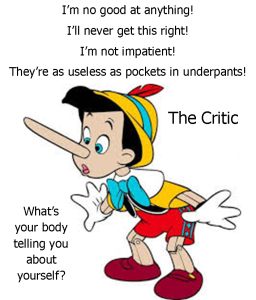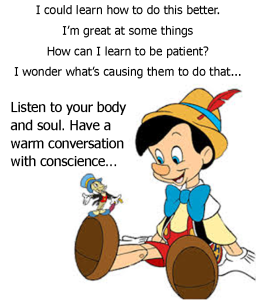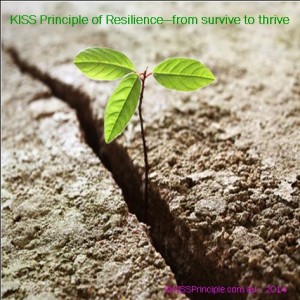Some of my readers may be aware that astrology is a tool I use to help me reflect on life, and hopefully make conscious choices as life arises moment to moment. In astrology, the phases of the moon can be powerful times for reflection in different ways. The disclaimer here is that I’m not an astrologer. However my avid interest in Astrology spans nearly 50 years: more recently studying the asteroid Chiron and how I see the wounded/healing processes play out in mine and other people’s life. Without going into something that is out of my depth, this article is to share a way we might work with the current new moon energy and it’s connection to three other heavenly bodies: Sun, Mercury, and Chiron. Together these four archetypal energies are dancing in a powerful way, known in astrology terms as a conjunction. Astrology and psychotherapy have been connected by many famous names in the psychology world for the last century at least. Carl Jung is highly respected for his work on archetypal energies associated with astrology and the synchronicity that plays out in cosmology and earthly experiences.
My interpretation and how I use astrology energy in spiritual, and therapeutic terms follows, and is in no way to be seen as astrology advice, simply one of many ways we can work with growth and energy in a conscious way. It’s always a personal choice. I study the wisdom of astrologers whose teaching I can relate to, and that changes overtime. I will link some items in this article to some current favourites. Astrology for me is more of a psychological and spiritual tool showing me a road map for potential growth, rather than a predictive tool. I find retrospective research of my own astrological chart (Astro.com) connections a way to understand the personal meaning, and a method to understand current life circumstances, and potential future direction.

So new moon energy in broad terms is often seen as way to start something, having cleared somethings away from the previous moon cycle. The moon can often be about our emotional experience, potentially connected to family and close relationships. “Sun conjunct Moon transit puts the focus on the most personal areas of life. You will pay more attention to your home, feelings, emotions, and close relationships, especially with women. The power of the Sun brings these deeper areas of life to the surface so that any problems that have simmered in these areas can be resolved in a positive way.” Astrology King – Jamie Partridge
Here is a link to Astrology King new moon article for April 1, 2022
My understanding of this Aries new moon is that as the first new moon of the astrological year, which begins each year at the March equinox, is that it’s a powerful time to create intention, and new focus for the year ahead. Read more about this here from Astrobutterfly
Mercury is often seen as relating to communication, the mind, and how we use it. “Mercury is the planet of the mind and mouth, guiding the way we think, our communication style, and our level of focus.” (Tarot.com)
The sun shines a light on our personality “The Sun, the giver of life, represents our conscious mind in Astrology. It represents our will to live and our creative life force. Just as the planets revolve around the Sun in our solar system, we derive our life purpose from the Sun” (Café Astrology)
Chiron is the wounded healer who is showing us a way to look at life long themes where we feel wounded in some way. The Chiron placements as it moves around the heavens can be seen as a way to work with healing energy as a process.
For those interested in astrology, knowing your birth time and checking your natal chart will provide a very personal view of these themes when you see which house this conjunction falls in for you. For me it’s in the first house which is rules by Aries themes. TD Jacobs meaning of Chiron in the houses might be something to assist in working out your current Chiron themes related to identity.
So this new start to an astrological year could highlight a time for reflection about identity: Who are you and how do you express that: where and how do you feel wounded about your identity. Mercury is the archetype that could foster some inner communication where you can reflect on where, over your life you feel wounded (Chiron) about your identity, and how it has affected the way you express yourself, throughout your life.
This morning as I reflected I identified (within the limits of my self-awareness) what this theme meant for me. As I wrote in my journal about that which was conscious at the time, I wrote about salient issues and noticed repeating themes which arose as recent as yesterday, then I identified where that overarching theme has played out over time in different ways, and then I wrote a realistic set of affirmations of intention of how I would like to live and express myself, my identity in the year ahead and beyond.
It doesn’t matter what your own personal affinity is with ways to raise awareness about living consciously, it matters more that it feels “growthful” for you. It matters that it helps you connect to your heart. Astrology is a powerful tool for me, and it’s just one of many ways I practice coming back to presence as often as possible in a very challenging world. I also have great curiosity for all things metaphysical, philosophical, and psychological. I listen to many teachers who inspire me. If you’d followed my blog over-time you will see that Tara Brach, Jack Kornfield, Jon Kabat-Zinn, Anthony De Mello, and Thich Nhat Hanh are all people whose teachings I admire greatly. I would add another to the list now: Mark Nepo. I would invite you to read, listen to, watch all the great resources shared by these people, and to also seek out your own current teachers who help bring you back to your heart.
Thought has the power to move internal mountains for better or worse. Attention and intention are directly related to thought experience. Pause… and notice often throughout your day where your attention is. For this new moon energy especially, take some time for reflection and planning: a powerful way to see your thoughts and how you might use thought proactively.
My questions for you are:
- What helps you move inner mountains: for worse or better?
- What helps bring you back to presence?
- What connects you with “true Love”?
- What would you like your life to be like in the year ahead?
- What do you need to let go of that will allow you to feel comfortable to be yourself?
- Who inspires you in positive ways with how they live their life?
I will share a photo of the page of affirmations I wrote in my journal when reflecting this morning. I’m aware I can add to this list anytime, as writing helps me to remember more of my identity and what that means to me.

May this article inspire you to remember more and more of who you are.
Blessings for a new year ahead.
Please feel free to add your own “identity” affirmations for the year head that feel powerful for you in the comments below. Sharing may inspire other people to connect more powerfully and uniquely to who they are, and how to share their gifts in community.



